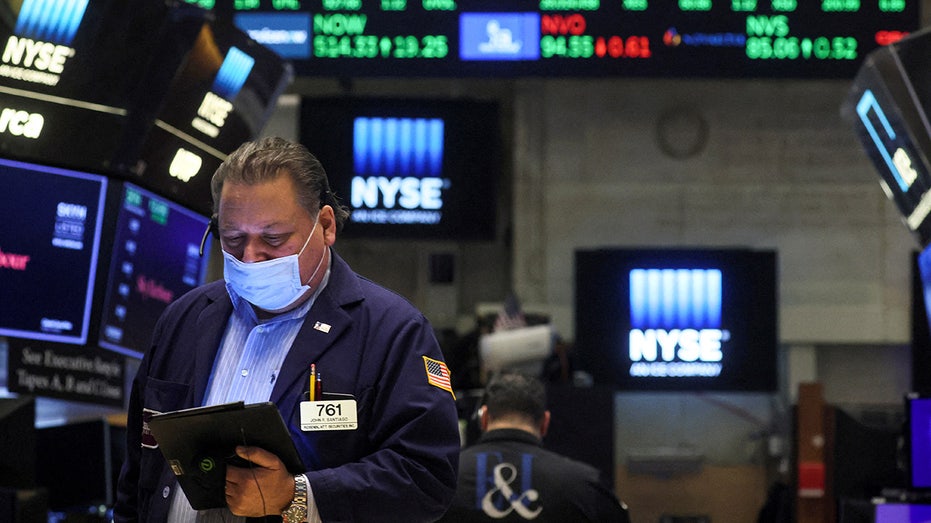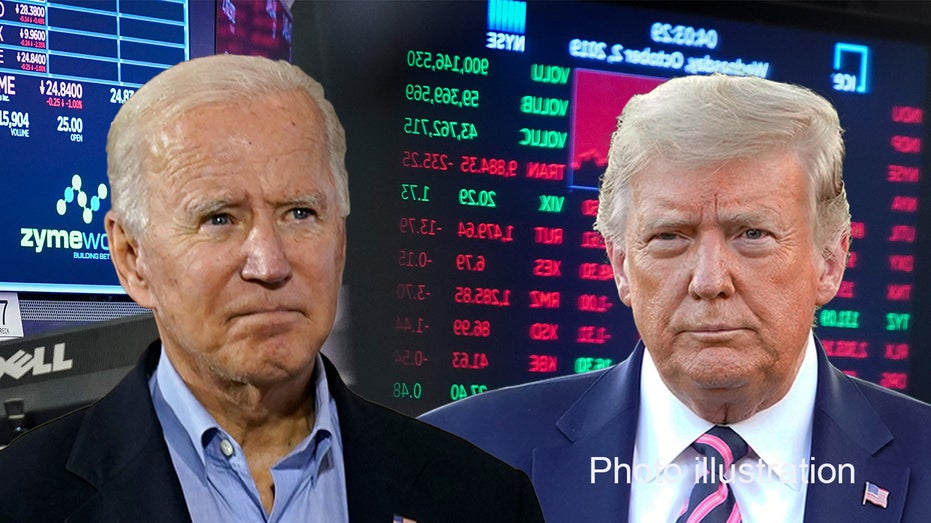What to do when you know what stocks will do next
Sometimes, investors think they know exactly what’s coming around the corner. That sort of certainty is often dangerous.
Charles Payne: Stock market is not a direct reflection of the economy
FOX Business host Charles Payne explains why he will always 'be a cheerleader' for opportunities while navigating the stock market on 'Making Money.'
Imagine you could know tomorrow’s news today. Would that make you a better investor?
On Oct. 13, the Labor Department announced the consumer-price index rose 8.2% in September from the same month a year earlier, dashing hopes that inflation would drop.
What if you had known, on Oct. 12, exactly what would be in the next morning’s inflation report?
You’d have bet stocks would tank, with a skittish market certain to panic on the news.
You’d never have guessed what happened next.

Traders work on the floor of the New York Stock Exchange (NYSE) in New York City, U.S., January 26, 2022. (Reuters Photos)
After nosediving 2% when the market opened that morning, stocks turned around almost instantly, shooting up to close nearly 3% higher, one of the biggest intraday swings on record.
In fact, U.S. stocks have risen roughly 9% since their low on the morning of Oct. 13.
Maybe people decided the bad news wasn’t bad enough to make the Federal Reserve raise interest rates even more than the 0.75 percentage point already considered inevitable at its November meeting. Maybe they felt the bad news was less bad than their worst fears.
Who knows? What we can know is that even possessing tomorrow’s news today wouldn’t assure you of being able to make a profitable trade. That’s why it’s so important to stick to a long-term plan rather than chasing the latest illusion of certainty.
One of Wall Street’s favorite sayings is that investors hate uncertainty. What they should hate, instead, is certainty.
Just think of all the other things markets have been certain about lately.
As recently as late July, market participants were sure that the Federal Reserve, after cranking up interest rates this year, was bound to cut them sharply in 2023. Just about nobody expects that anymore.

Tesla Inc CEO Elon Musk walks next to a screen showing an image of Tesla Model 3 car during an opening ceremony for Tesla China-made Model Y program in Shanghai, China January 7, 2020. The seeming certainty of Tesla's growth left investors flat-foote (REUTERS/Aly Song//File Photo / Reuters Photos)
DAY TRADERS GO BACK TO THEIR DAY JOBS AS STOCK MARKET SWOONS
Last December, Tesla Inc.’s market value rose nearly $200 billion in four days, more than the market value of Ford Motor Co. and General Motors Co. combined, all on the belief that the electric-car maker’s growth couldn’t possibly stall. Tesla is down 36% so far this year, a wipeout nearly twice the size of that year-end rise.
| Ticker | Security | Last | Change | Change % |
|---|---|---|---|---|
| TSLA | TESLA INC. | 411.11 | +13.90 | +3.50% |
| F | FORD MOTOR CO. | 13.80 | +0.08 | +0.58% |
| GM | GENERAL MOTORS CO. | 84.24 | +0.94 | +1.13% |
In January, in a consensus almost as tight as a chorus line, market strategists were forecasting that stocks would gain between 6% and 11% this year. The S&P 500 has lost nearly 20% so far in 2022.
Not long before that, Wall Street had been pitching so-called quality stocks, with high profitability and low debt, as a kind of insurance against whatever the economy might throw at you. Quality stocks have underperformed the S&P 500 by roughly 4 percentage points this year.
And just think of the cocksure certainty with which gold bugs and bitcoin fans had been proclaiming for years that the precious metal and the digital currency were perfect ways to protect your purchasing power. So far in 2022, with inflation raging, gold is down 9%; bitcoin has lost more than 50%.
It isn’t only small investors and financial professionals who think they can figure out exactly what’s coming.
Consider The Wall Street Journal’s recent multipart investigation, "Capital Assets," which has exposed the shocking extent to which U.S. officials trade stocks and other assets.
Among the most avid of these traders, the Journal found that roughly seven dozen senior federal officials, their family or their financial advisers made a total of more than 80,000 trades from 2016 through 2021.
The husband of one official, for example, made more than 9,500 trades in a single year, 2020, including stocks, options and short sales, or bets that an asset’s price will fall. That’s an average of 38 trades each day the markets were open.

Senior Executive Branch officials made suspicious trades under both the Trump and Biden Administrations.
INFLATION TOPS FINANCIAL WORRIES AMONG RETIREES: GOLDMAN SACHS
It’s also an extreme example of what happens when you pursue the illusion of certainty. It becomes easy, as you chase the next short-term gain and adrenaline surges through your bloodstream, to imagine that you know what’s coming next.
Markets don’t work like that, though. They don’t permit any one of us, no matter how smart or foresighted, to know exactly what will happen.
Beliefs that had come to feel like eternal truths—inflation is dead, interest rates will stay lower for longer, there is no alternative to stocks, giant technology companies will never let investors down, and so on—have been blowing up in people’s faces. This Thursday, Meta Platforms Inc., parent of Facebook, announced disappointing earnings and lost nearly $85 billion in market value in a single day.
| Ticker | Security | Last | Change | Change % |
|---|---|---|---|---|
| META | META PLATFORMS INC. | 661.46 | -8.75 | -1.31% |
It’s precisely at times like these that investors need to be on guard against the next certainty. You don’t have to act on every forecast, and the more certain a prediction sounds, the more you should doubt its validity.
Any day now, someone persuasive will be telling you, with a high degree of conviction, when inflation has to fade, when interest rates must fall, which industry sector is doomed to fail or sure to dominate.
CLICK HERE TO GET THE FOX BUSINESS APP
That voice of certainty will be backed by reams of past data. It will feel reassuring. It will make you feel you are not alone. It will tempt you to follow it. And it is all but certain to be wrong.




















